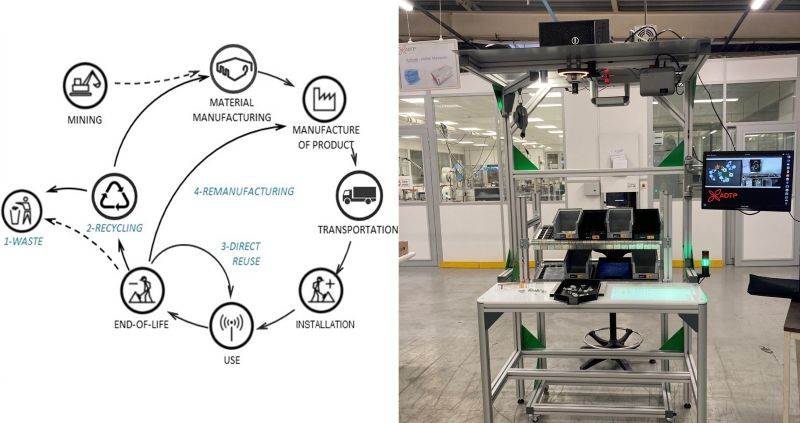
Pour assister en ligne, le lien Zoom : Lien vers le site
ID de réunion: 993 5271 9484
Code secret: 857797
Membres du jury :
- Rapportrice : Parisa GHODOUS – Professeure des Universités, Université Lyon 1 – Claude Bernard
- Rapportrice : Lilia GZARA – Professeure des Universités, INSA Lyon
- Examinatrice : Lamia BERRAH – Professeure des Universités, Université de Chambéry
- Examinatrice : Virginie GOEPP – Professeure des Universités, IINSA Strasbourg
- Directeur de thèse : Andreas RIEL – PAST HDR, Grenoble INP
Langue de la présentation : Anglais
Abstract:
Data-driven organizations aim to control their business decisions based on data, as data has become the gold of the 21st century. Many organizations face the challenge of optimizing the use of their data to predict future events, quickly adapt their strategies, and strengthen their business plans and models. However, despite significant investment in digital transformation, studies show that many organizations are still facing challenges in taking full advantage of the benefits resulting from data. Moreover, organizations lack a corresponding data culture, governance structures, and data processing capabilities. Existing maturity models for digital transformation, data management, and data-driven organizations lack a comprehensive, industry-independent, and practical approach to industry challenges. Furthermore, the increasing digitization and automation of processes within organizations is creating a greater need to consider human factors in the development and implementation of organizational-level technologies. Consequently, Industry 5.0 refocuses the transformation strategy on people rather than technology alone.
In this context, it is crucial to consider the growing volume of data by investing in data systems and the people who interact with them. To this end, this thesis proposes a maturity model designed to systematically capture an organization's state on its digital transformation journey. The model also serves as a foundation for creating a roadmap to help organizations become more data-centric while developing data management skills. Further integrating people into the use of advanced technologies can improve innovation, productivity, and accountability.
To this end, this work adopts De Bruin's model development approach in two stages. The first iteration proposes a data management maturity model based on a reference model that has been used in practice for over ten years. This new model aims to incorporate all the key elements of a data-driven organization and focuses on the interdependencies needed to assess maturity levels. It provides targeted recommendations for addressing data-related challenges during the transition. The first iteration also identified the need for a data mastery maturity model, produced in the second iteration. In the context of Industry 5.0, the DLMM model places greater emphasis on the human dimension. It aims to assess the maturity of data skills and enable organizations to benchmark themselves against others. The results can also be used to create a roadmap to support the transition to data- and value-driven organizations. The modular structure of the maturity model allows it to adapt to changing market conditions.
The entire work is based on a field study that was carried out in the industrial research environment of Camelot Management Consultants (since 2024 part of Accenture) over three years, complemented by an in-depth analysis of research literature in related fields. Expert interviews, surveys, brainstorming sessions and guest lectures, as well as the active support and accompaniment of concrete data management projects, were the main practical means of developing and validating the results..
Jury Members :
- Reviewer: Parisa GHODOUS – University Full Professor, Université Lyon 1 – Claude Bernard
- Reviewer: Lilia GZARA – University Full Professor, INSA Lyon
- Examiner: Lamia BERRAH – University Full Professor, Université de Chambéry
- Examine: Virginie GOEPP – University Full Professor, IINSA Strasbourg
- Thesis Director: Andreas RIEL – University Professor, Grenoble INP, Directeur de thèse
Language of Presentation: English
For those unable to attend in person, please find the link below : Weblink
ID de réunion: 993 5271 9484
Code secret: 857797
Responsable et contact
 +33 (0)
+33 (0)4 76 82 70 24 Bureau: C 312 |


